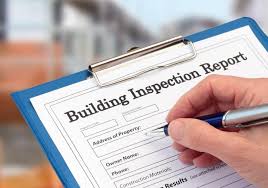مميزة
- الحصول على الرابط
- X
- بريد إلكتروني
- التطبيقات الأخرى
Ensuring Product Quality: The Importance of Conformity Inspection
Product conformity inspection is an essential process for ensuring the quality and reliability of products. In today's competitive market, it is crucial for businesses to maintain high standards of product quality to meet customer expectations and regulatory requirements. Conformity inspection plays a key role in this, as it enables businesses to identify and address any non-conformities or defects in their products before they reach the market. This ensures that products are safe, reliable, and meet the required standards, ultimately contributing to customer satisfaction and business success. In this article, we will explore the importance of conformity inspection in ensuring product quality and the benefits it brings to businesses and consumers alike.
Ensuring product quality is essential for the success of a business. Conformity inspection is a critical step in this process as it involves determining whether a product meets the specified requirements and standards. This inspection helps in identifying any deviations from the required quality, which can lead to non-conformance and potential customer dissatisfaction. It also ensures that the products are safe for consumer use and comply with industry regulations. By conducting conformity inspections, businesses can prevent defects, reduce waste, and maintain the integrity of their brand. Overall, conformity inspection plays a vital role in ensuring that products meet high-quality standards and are fit for the market.
Ensuring product quality is crucial for business success. Conformity inspection is essential for determining whether a product meets specified requirements and standards. It helps identify deviations from required quality, preventing defects and maintaining brand integrity. Additionally, it ensures products are safe and compliant with regulations, reducing waste and potential customer dissatisfaction. In summary, conformity inspection is vital for maintaining high-quality standards and market suitability.
Understanding Product Conformity Inspection: A Guide for Businesses

"Understanding Product Conformity Inspection: A Guide for Businesses" is a comprehensive resource that explains the importance of product conformity inspection for businesses. It offers in-depth information on the process of product conformity inspection, including the steps involved and the key factors to consider. The guide also provides practical tips and best practices for businesses to ensure that their products meet the necessary conformity standards. Whether you are a small business or a large corporation, this guide can help you navigate the complexities of product conformity inspection and ensure that your products are in compliance with relevant regulations.
The Importance of Product Conformity Inspection for Quality Assurance

Product conformity inspection is a critical aspect of quality assurance for any company that manufactures or sells products. This process ensures that the products meet the required standards and specifications as set forth by regulatory agencies, industry standards, and customer expectations. Conducting product conformity inspection helps to identify any defects, non-conformities, or discrepancies that may be present in the products. By detecting these issues early on, companies can take corrective action to address them and prevent the distribution of substandard or unsafe products. In addition to preventing quality issues, product conformity inspection also helps to build trust and confidence among customers. When customers receive products that meet their expectations in terms of quality, safety, and performance, it can lead to higher levels of satisfaction and loyalty. Furthermore, product conformity inspection can also help companies avoid potential legal and financial repercussions. In many industries, non-compliance with regulations and standards can result in hefty fines, legal battles, and damage to the company's reputation. Ultimately, product conformity inspection is an essential part of quality assurance that can help companies uphold their reputation, maintain customer satisfaction, and ensure the safety and performance of their products.
How Product Conformity Inspection Ensures Compliance with Regulations

Product conformity inspection ensures compliance with regulations by thoroughly evaluating products to ensure they meet specific standards and requirements set by regulatory authorities. This inspection process involves examining various aspects of the product such as materials, manufacturing processes, labeling, safety features, and performance to ensure they align with the regulatory framework. By conducting these inspections, businesses can verify that their products adhere to legal obligations and are safe for consumers, thereby avoiding potential penalties and legal consequences. Additionally, it helps to build trust and credibility with customers by demonstrating a commitment to delivering compliant and high-quality products. Overall, product conformity inspection plays a crucial role in ensuring that businesses operate within the boundaries of regulatory guidelines and standards.
Key Factors to Consider in Product Conformity Inspection Processes

Some key factors to consider in product conformity inspection processes include: 1. Regulatory Requirements: Ensure that the inspection process complies with relevant regulatory standards and requirements in the market where the product will be sold. 2. Quality Control Measures: Implement stringent quality control measures to verify the conformity of the product to standards and specifications. 3. Sampling Techniques: Develop an effective sampling plan to ensure that the inspection process is representative of the entire product batch or production run. 4. Testing Methods: Utilize reliable testing methods and equipment to accurately assess the product's conformity to specifications. 5. Documentation and Record-Keeping: Maintain comprehensive records of the inspection process, including test results, observations, and any non-conformities identified. 6. Supplier Qualification: Verify the qualifications and capabilities of the supplier to ensure that they have the capacity to consistently produce conforming products. 7. Continuous Improvement: Establish a framework for continuous improvement to enhance the effectiveness and efficiency of the conformity inspection process over time.
The Role of Product Conformity Inspection in International Trade
Product conformity inspection plays a crucial role in international trade by ensuring that products meet the necessary standards and regulations of importing countries. This process helps to protect consumer safety, prevent fraud, and maintain fair competition in the global market. Conformity inspection can involve a variety of measures, including physical inspections, testing of samples, and documentation reviews. These inspections are typically carried out by accredited third-party organizations to provide independent verification of a product's compliance with relevant standards. In many cases, products must undergo conformity inspection before they can be cleared for importation into a foreign market. Failure to meet these requirements can result in delays, added costs, or even rejection of the goods. Overall, product conformity inspection is essential for ensuring the quality and safety of goods in international trade, and for facilitating smooth and efficient cross-border transactions.
Common Challenges Faced in Product Conformity Inspection Procedures
Product conformity inspection procedures can present several challenges for businesses and regulatory authorities alike. Some common issues include inconsistent interpretation and application of standards and regulations, lack of clarity or alignment in requirements across different markets, difficulties in accessing and obtaining relevant information, and variation in inspection methods and practices. Additionally, language barriers, cultural differences, and differing levels of technological infrastructure can all impact the effectiveness and efficiency of product conformity inspection procedures. Adapting to these challenges requires a collaborative and flexible approach, as well as ongoing communication and coordination among relevant stakeholders.
Best Practices for Implementing Effective Product Conformity Inspection
Product conformity inspection is a crucial part of the manufacturing process to ensure that products meet the required standards and regulations. Here are some best practices to implement an effective product conformity inspection: 1. Clearly define inspection criteria: Establish clear and specific criteria for product inspection, including dimensions, materials, functionality, and any applicable regulatory requirements. 2. Use reliable inspection methods and tools: Invest in reliable inspection tools and equipment to ensure accurate and consistent results. This may include visual inspection, measurement tools, testing equipment, and automated inspection systems. 3. Train personnel: Provide thorough training for inspection personnel to ensure they understand the inspection criteria and methods, and can consistently apply them during the inspection process. 4. Implement a quality control plan: Develop a comprehensive quality control plan that outlines the inspection process, frequency of inspections, and responsibilities of personnel involved. 5. Conduct regular audits: Regularly audit the inspection process to identify any potential gaps or areas for improvement. This may include reviewing inspection results, conducting internal or external audits, and soliciting feedback from personnel involved in the inspection process. By following these best practices, manufacturers can ensure that product conformity inspection is effectively implemented, leading to higher quality products and compliance with regulatory requirements.
The Impact of Product Conformity Inspection on Consumer Safety and Satisfaction
Product conformity inspection plays a crucial role in ensuring consumer safety and satisfaction. When products undergo thorough inspection for quality, safety, and conformity to regulations, it reduces the risk of faulty or hazardous products reaching the market. This, in turn, helps in safeguarding consumer safety and satisfaction. Conformity inspections also contribute to enhancing consumer confidence in the products they purchase. When consumers are assured that the products they buy have undergone strict conformity checks, they are more likely to trust the brand and feel satisfied with their purchase. This positively impacts their overall satisfaction and loyalty towards the brand. Furthermore, product conformity inspection helps in preventing potential product recalls, which can be costly for businesses and damaging to their reputation. By ensuring that products comply with safety and quality standards before reaching the market, companies can avoid the negative impact of product recalls on consumer trust and satisfaction. In conclusion, product conformity inspection is essential for ensuring consumer safety and satisfaction. By upholding quality and safety standards, businesses can build trust with consumers, reduce the risk of defective products, and ultimately enhance consumer satisfaction.
In conclusion, safeguarding the quality of a product is essential for ensuring customer satisfaction and maintaining a positive brand reputation. Product conformity inspection plays a crucial role in this process, as it helps identify and rectify any non-conforming products before they reach the market, ultimately contributing to overall product quality and consumer safety. It is imperative for companies to prioritize conformity inspection as part of their quality control measures to uphold the standards expected by consumers and regulatory bodies.
- الحصول على الرابط
- X
- بريد إلكتروني
- التطبيقات الأخرى
المشاركات الشائعة
حقن فيتامين ب12 للشعر وما المصادر الغذائية التي تحتوي على فيتامين ب12
- الحصول على الرابط
- X
- بريد إلكتروني
- التطبيقات الأخرى